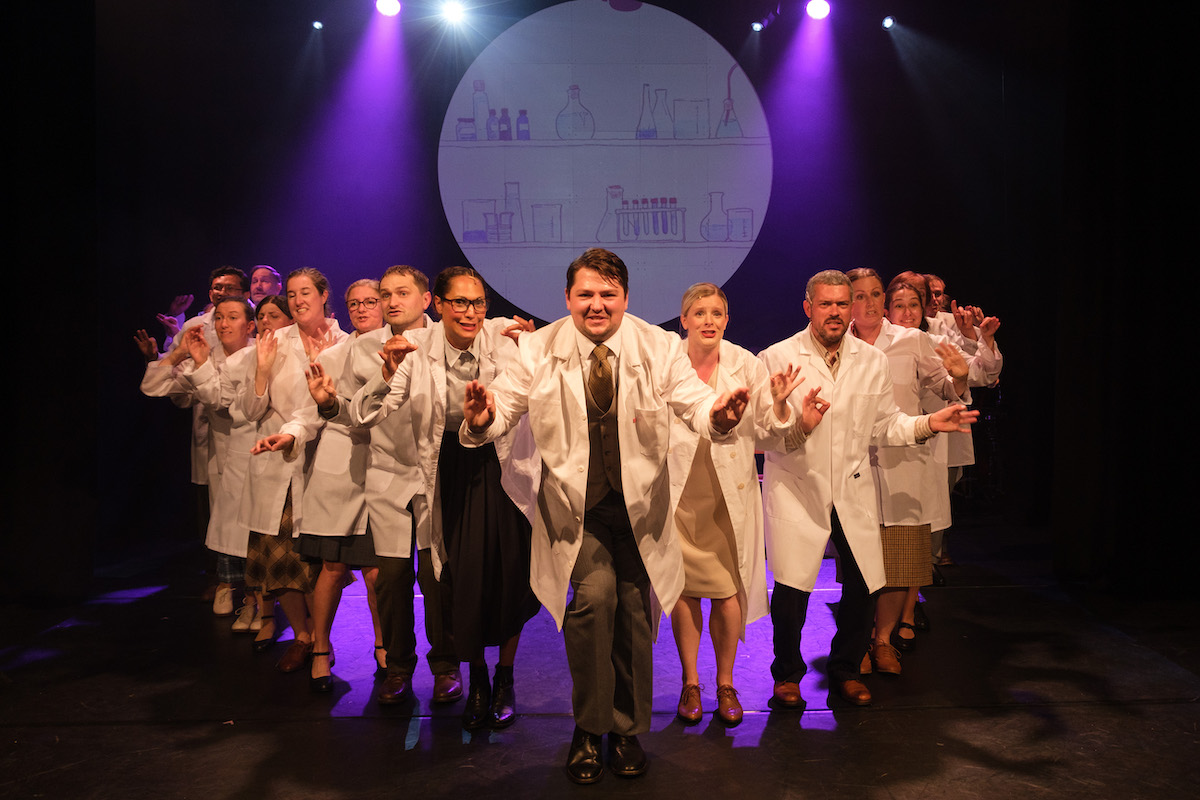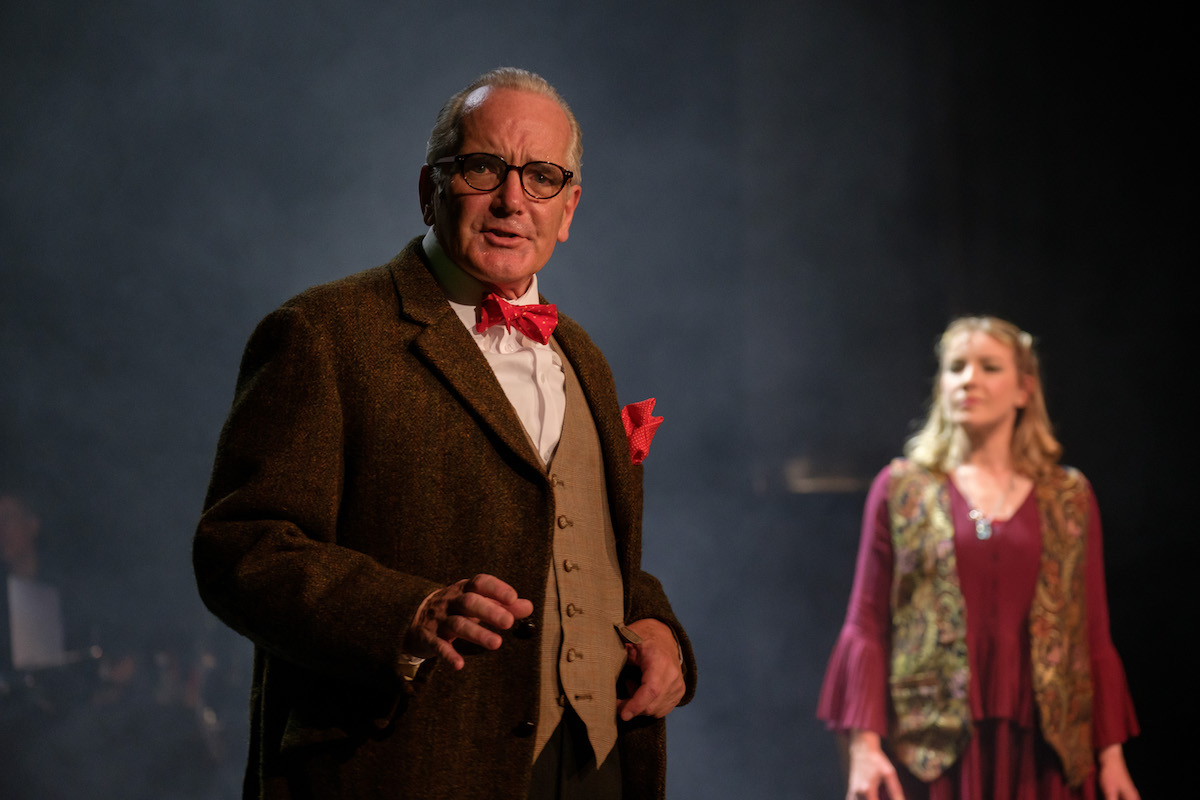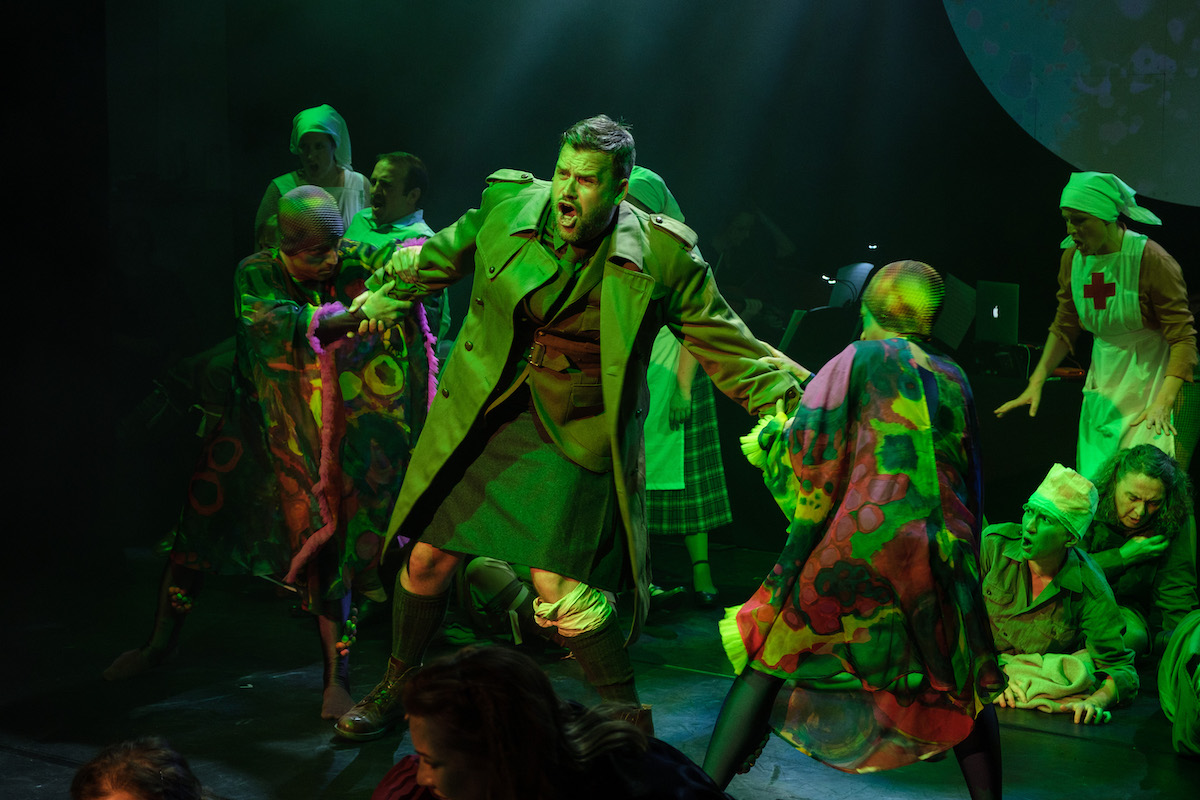Credit the idea for this quirky musical — about the development of penicillin and the threat of antimicrobial resistance — to a committed physician in Edinburgh, Scotland.
“The Mold That Changed the World” first was a glimmer in the eye of Meghan Perry, an infectious disease doctor there, who broached the question of a theatrical production about antibiotics to Robin Hiley, artistic director of the Charades Theater Company in Edinburgh. Hiley initially rolled his eyes at the thought, despite his troupe offering “theatre with a social conscience.”
But that was in 2016. Perry persisted, believing the world would benefit from a creative means of spreading this important message about overuse of antibiotics. Hiley got behind the idea and soon enough the musical had earned sold-out runs at the Edinburgh Fringe Festival as well as performances in London and Glasgow. “Mold” centers on Sir Alexander Fleming, the Scottish physician and microbiologist who received a Nobel Prize in 1945 for discovering penicillin.
Playing this week for Atlanta audiences
Now the musical is thoughtfully engaging audiences on this side of the pond, not to mention favorably capturing the attention of media outlets such as the New York Times and Forbes. Its U.S. premiere was in Washington, D.C., timed with ID Week2022, the major annual meeting of infectious diseases societies. Atlanta is the only other American city where the show will appear this year.
The show comes here thanks to the support of the British Consulate General in Atlanta and the U.K. government’s Science and Innovation Network, headed in the Southeast by CarriAyne Jones Parr.The Centers for Disease Control and Prevention (CDC) Foundation and the Rockefeller Foundation provided funding for the tour.
“Mold” opens to the public on Nov. 2 in Science Gallery Atlanta’s Pullman Yards exhibit space. Emory joined the global network of Science Gallery locations in January 2020. This network of galleries based in leading universities across four continents brings together science, art, technology and design to deliver world-class educational and cultural experiences.
Maryn McKenna, senior fellow at Emory’s Center for the Study of Human Health, is working behind the scenes to ensure that the performances here take full advantage of Emory and Atlanta’s health resources. The show has a volunteer chorus composed of Emory, Grady Memorial Hospital and CDC people who — representing soldiers, lab technicians and reporters — sing and dance with the rest of the cast.
Newly arrived Consul General Rachel Galloway will kick off the Atlanta dates on Nov. 1 with an address before a private, VIP-only special performance. McKenna will moderate an expert panel before the performance that also will be limited to the VIP guest list.
It will feature Debra Houry, acting principal deputy director of the CDC and director of the CDC’s National Center for Injury Prevention and Control, who is also an adjunct associate professor at Rollins School of Public Health; Judy Monroe, president and CEO of the CDC Foundation; Diane Shader Smith, author and cystic fibrosis advocate whose daughter, Mallory, died of a superbug infection secondary to her cystic fibrosis; and Hiley, who composed the show’s score.
“I first saw ‘Mold’ in 2018 while I was appearing at the Edinburgh Book Festival, and was thrilled by its smart combining of science, art and entertainment,” says McKenna, who traced the emergence of antibiotic resistance in her books ‘Superbug’ (2010) and ‘Big Chicken’ (2017). “It’s a serendipitous joy to help bring it to Atlanta, the public health capital of the U.S., at the moment when the ebbing of the COVID pandemic is leading us to recognize that countering antibiotic resistance is the next big health task.”
Solid entertainment — and advice
According to the National Library of Medicine, “After just over 75 years of clinical use, it is clear that penicillin’s initial impact was immediate and profound. Its detection completely changed the process of drug discovery, its large-scale production transformed the pharmaceutical industry and its clinical use changed forever the therapy for infectious diseases.”
Even amid the joy of pioneering this remedy, Fleming foresaw the danger of antimicrobial resistance, which — experts estimate — leads to 1.2 million deaths around the world each year.
As the play charts, before his career as a scientist, Fleming served 14 years in the London Scottish Regiment. During World War I, in 1914, he finds himself in Bologne, France, tending to soldiers — some from his old unit — who are at risk from exposure to poison and shrapnel wounds that turn into deadly infections. By the play’s end, Fleming is catapulted to the present day, where he condemns what he sees: human overuse of antibiotics and farmers using them to prevent and treat disease in livestock and increase productivity.
The play’s sponsors hope to increase congressional support for the PASTEUR Act, which would encourage drug companies to make investments in new antibiotics. In part, the “superbug” phenomenon stems from the fact that companies aren’t investing in antibiotics because they are not lucrative, yet the bugs continue to outsmart existing drugs.
From Meghan Perry to the current cast, all associated with the play hope that its message is unambiguous: conserve and protect antibiotics, and steer clear of using them when you can.
Performances take place at Pullman Yards, Building 12, Wednesday, Nov. 2-Sunday, Nov. 6. Shows were sold out, but a new round of tickets have been added to accommodate demand. General admission is $25; student admission is $10. Order tickets here.



